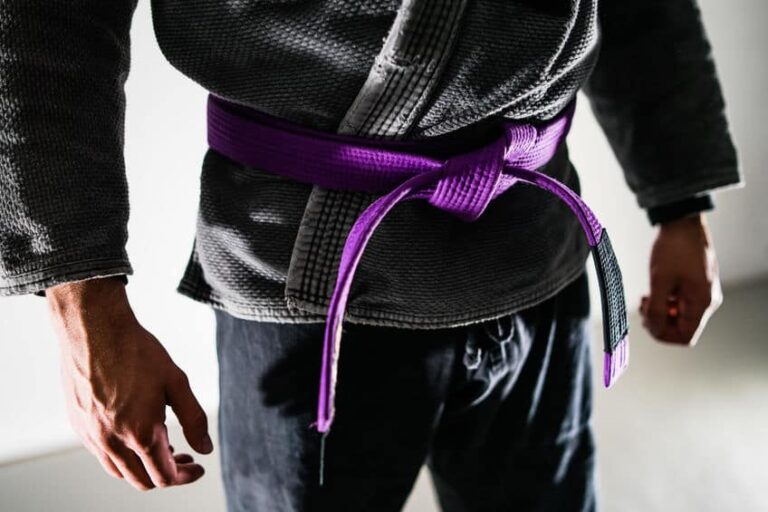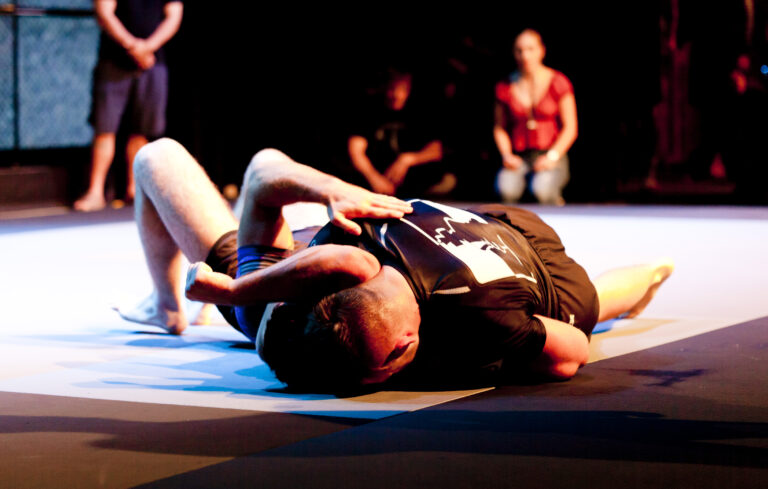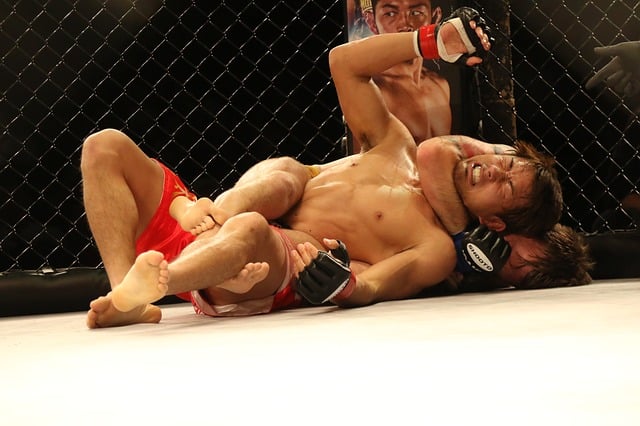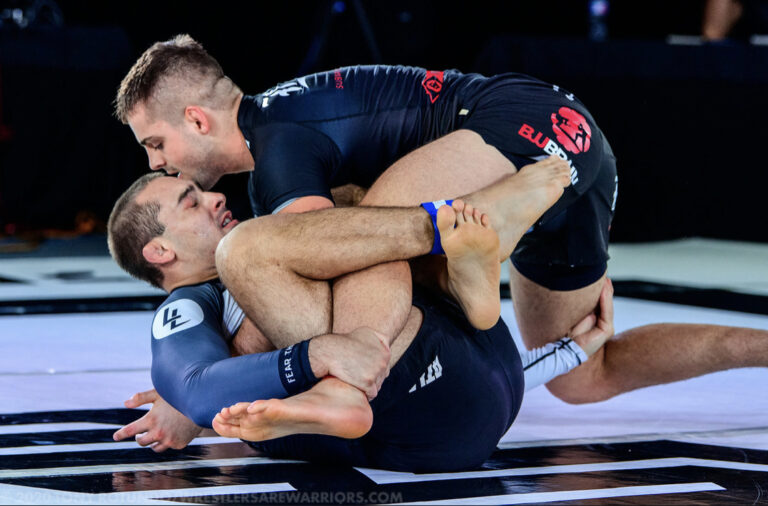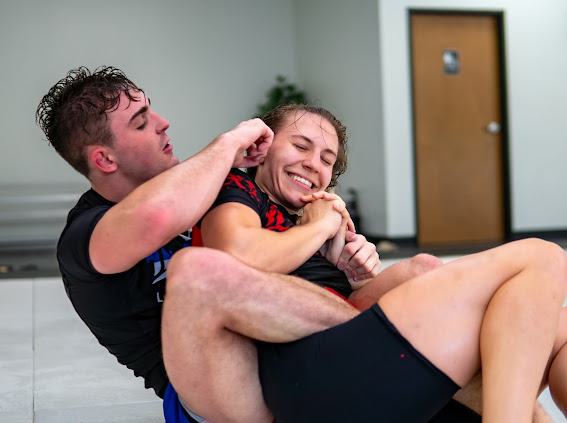Why Size and Strength Matter In BJJ ( and What To Do About It )
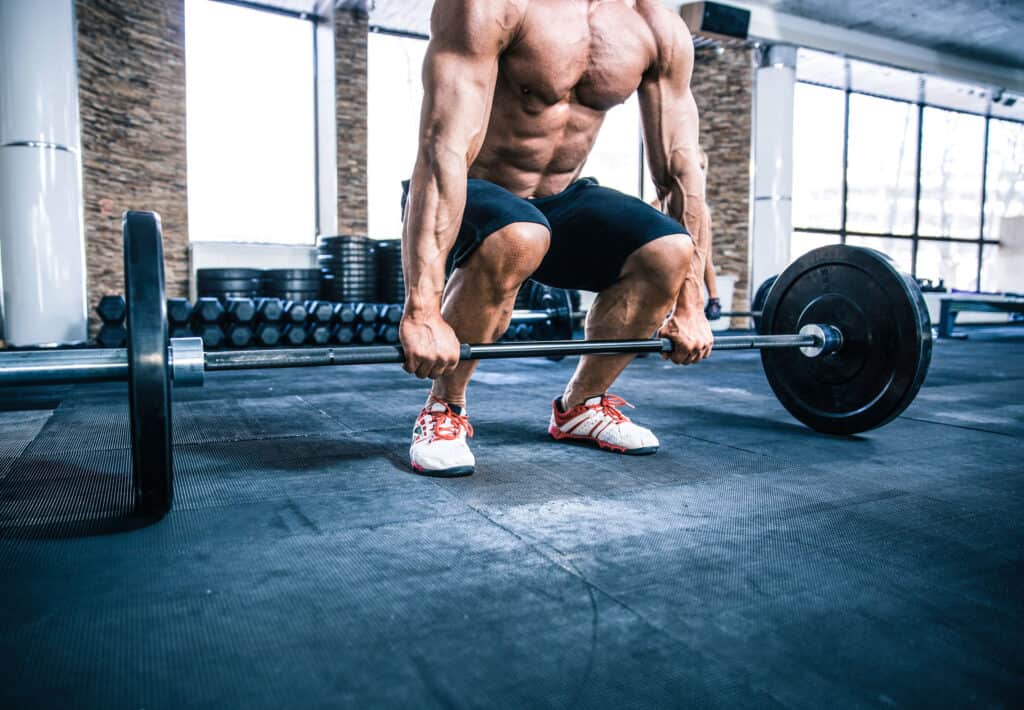
BJJ is marketed as a martial art where a smaller grappler can beat a much larger opponent who is less skilled. Though there is some truth to this statement, size and strength matter in BJJ.
Strength training should be a crucial aspect to anyone serious about BJJ. This does not mean you have to live in the weight room either. I have put people on programs that have drastically improved their strength training only twice per week for 30 minutes.
When skill is equal, the bigger stronger BJJ practitioner is going to win 9 times out of 10. This is simply, a fact that you will find in just about every sport. Of course, this is only if their jiujitsu skills and technique are equal.
If you are a smaller person don’t give up hope just yet. BJJ skills can help you defeat an opponent who is larger and less skilled than you.
But if you are hoping that size and strength do not matter in BJJ, sorry you are out of luck.
Proof That Size And Strength Matter In BJJ
A good example of this is a video I watched of the world’s strongest man Hafthor Bjornsson rolling with a BJJ black belt. Hafthor was simply too big and too strong for the black belt to use his skills effectively.
I know this is an extreme example. After all, he is six foot nine inches tall and weighs 400-450 lbs. Not to mention possibly the strongest person to ever live.
Either way, it does show that if someone is that much stronger it can neutralize your BJJ when the size difference is extreme.
Of course, there is another example where Hafthor rolls with Gordon Ryan who is arguably the best No-Gi grappler of all time. Because of Gordon Ryan’s skills and larger size ( though still much smaller than Hafthor ) he was able to handle the strongman with relative ease.
So obviously skills are the most important aspect of jiu-jitsu. But once a size and strength difference is too extreme a smaller BJJ athlete is going to have a hard time utilizing their skills. This is the obvious reason that there are
Skill Vs. Size and Strength In BJJ
That said, I have also seen the exact opposite where some big 230 lb bodybuilder comes to class and gets easily tapped out by someone 150 lbs. Skills are more important than size but you can only stretch it so far.
There is a point where an extreme is so large that your skills are hard to overcome an opponent’s size and strength. I know it is not what a lot of people want to hear but it is the truth.
There is truly an unbelievable advantage that BJJ skills can give you over a larger opponent. But you must understand that it takes extreme skill to overcome a much larger opponent.
A great example of skill overcoming size is the famous match from Who’s Next when Andrew Tackett took on Big Dan. Big Dan has a major size advantage and is very skilled in jiu-jitsu. However, Andrew was still able to use his skills to submit Big Dan via rear naked choke.
Why Strength and Size Matter in BJJ
Size and strength matter in BJJ for the same reasons they matter in all sports. Simply put being bigger and stronger than your opponent gives you a physical advantage. Of course, when I say bigger and stronger I do mean putting on more muscle.
The fact of the matter is that being strong and athletic will also give you an advantage in the event of self-defense as well.
I think it is crazy when people who want to learn self-defense do not take into account their physical strength and athletic ability. Of course, you can only get as strong as your genetics will allow but everyone who does BJJ should also do strength training.
Whether you are a hobbyist or a high-level competition, you are missing out if weekly strength training is not part of your training routine. Again this does not mean you need to spend hours in the weight room.
You can get considerable results from strength training just twice per week. Of course, you can also potentially work out 3-5 times per week depending on your goal. Since technique and skill are king in BJJ, you also should not be spending too much time strength training either.
Why Athleticism Matters In BJJ
Not only does size and strength matter but so does overall athleticism. Of course, strength plays a crucial role in athleticism but so does power and cardiovascular conditioning.
This is especially true if you are aiming to be a jiu-jitsu competitor. Again skill and technique are king but don’t forget that you are competing in a sport.
Like every sport, strength & conditioning play a crucial role in the success of an athlete. BJJ athletes are no exception. In fact, BJJ is one of the most physically demanding sports in the world. So to think athleticism does not matter would be a big mistake.
Beyond building strength and power for BJJ, you also need to develop your energy systems, improve flexibility, and much more. If you gas out before your opponent then you are going to be at a major disadvantage.
What To Do If You Are A Smaller Grappler
Hopefully, this post did not get you down. My goal is not to discourage anyone but to not give them a false or unrealistic sense of security.
Don’t underestimate how much strength and size play a role in a physical altercation. You might not be able to put on 30 extra pounds of muscle but you can certainly become stronger. Adding just a few days of strength training is enough to make some major differences.
Not only will it help your BJJ game, but it is also good for your mental and physical health. There are a ton of positive benefits of lifting weights whether you are an athlete or not.
How To Put On Size Or Strength For BJJ
Before choosing a strength training routine for BJJ, figure out how many days per week you can realistically work out.
Whether you’re just starting or you’ve been training for a while, you should never overdo it. Exercising too often could cause a decline in performance. You also need to consider that you still need to figure in your jiu-jitsu and conditioning training which also add stress to the body.
A good place to start is strength training 2-3 times per week, making sure to focus on all major muscle groups in the body. BJJ or any form of grappling requires full body strength.
The base of your strength training program needs to focus on getting stronger on the basic compound lifts. This simply means that you are using multiple muscle groups to perform the exercise.
Good examples would include squats, deadlifts, bench press, overhead press, barbell rows, pull-ups, and dips. You can also use machines that mimic these exercises as well.
You might also consider learning some of the Olympic lifts as well such as the snatch and the clean and jerk. These are great exercises but are a little more complicated and may require coaching.
Progressive Overload
The biggest measurable factor in increasing strength and building muscle is to push yourself to new heights constantly. In the fitness world, the term for this is progressive overload.
Progressive overload is achieved by continuously increasing the stress on your muscles. You can do this in a few different ways:
- Adding more repetitions
- Increasing the number of sets per workout
- Increasing resistance or heaviness of weights
Of course, you should always focus on lifting safely and with good form. Don’t just try and increase the weight by any means necessary. Otherwise, you could harm yourself which isn’t good for BJJ.
Developing The Right Diet For Getting Stronger
Another component when putting on size or strength as a jiu-jitsu athlete is diet. To build more muscle and get stronger you need to provide the raw materials and energy for your body to grow.
Since you are also training BJJ, the number of calories you may need to eat to put on size may exceed that of a person only going to the gym to lift weights. This is due to the extra calories burned during BJJ training.
After all, doing rounds of Jiu-Jitsu can burn a lot of calories. This is great for getting lean but can be counter-productive to putting on size, especially if the calories burned during training are not compensated for.
Now if you are only a hobbyist in BJJ and train a few times per week you don’t need to worry so much about this.
How Much You Need To Eat To Get Stronger For BJJ
To lose a pound of fat you need to burn 3500 calories. Often people make the mistake and assume that you need to add 3500 calories to put on a pound of muscle as well. However, one gram of fat contains 9 calories whereas one gram of protein contains about 4 calories ( and muscle is made up of protein ).
Of course, it takes some energy to build the muscle but you can still expect that the calories needed to build a pound of muscle are much less than needed to add a pound of fat. For simplicity let’s cut the number in half and round it up to 2000 calories.
Now unless you are brand new to working out and have amazing genetics ( or you are on some special sauce ) you are not going to be putting on a pound of muscle in one week. Putting on a pound of muscle per week would equate to 285 calories above your maintenance each day.
So adding 200 calories to your daily maintenance calories is plenty. Maintenance calories are simply the number of calories needed to stay at your current body weight.
You don’t want to put on a bunch of unwanted body fat so there is no need to go more than 200 calories above your maintenance. If you are not slowly gaining weight eating above your maintenance then your maintenance is just higher than you estimated.
To figure out your maintenance calorie estimate you can check out an online calculator or use a simple mathematical multiple.
Calculating Your Calories For Building Muscle
For most people, you can expect maintenance to be somewhere between 13 and 15 times your body weight ( again all estimates ). If you are less active it will be on the lower end and if you are very active it could even be 16,17,18+ times your body weight.
You will simply need to figure this out with the experiment. But if you are a competitive athlete who trains twice per day it may be higher than you think. 15 is a good place to start if you are active but perhaps not training hours on end every day.
You also need to consider your work and daily tasks. If you are a construction worker then your calories are going to be much higher than a software engineer.
Since you are not realistically putting on more than a pound of muscle per week just make sure you are gaining weight slowly but no more than one pound per week.
Protein and Other Macro Nutrients
Now that you have a good idea of the number of calories needed each day to put on muscle, let’s break down how much protein, fat, and carbs you will need to consume.
Protein is the macronutrient needed to put on muscle for strength gains. To gain muscle a good rule of thumb is to get one gram of protein per pound of lean bodyweight. If you are lean just go with one gram per pound of body weight.
If you have 50 pounds to lose then do your body weight minus 50 grams. Or honestly, you might consider focusing on losing 50 pounds of body fat first while adding or keeping a strength training regime.
For example, a lean 150-pound man will need at least 150 grams of protein each day. This equates to about 600 calories from protein. The rest of your calories are going to come from either fats or carbs
My suggestion is that the majority of the remaining calories should come from carbs when putting on muscle. Carbs are key to recovery, filling muscle glycogen, and performance. I don’t think there needs to be an exact percentage but for the heck of it let’s just say about 40% of calories should come from carbs.
The rest should come from fats. Fats should come from mostly healthy sources and will almost come naturally when cooking with butter or oils.
If you want to keep calculations simple just make sure you hit the calorie and protein numbers. Focus on carbs next but you probably do not need to sweat exact numbers. Just don’t go low carb or low fat when trying to gain strength and or put on size.
In Conclusion
Size and strength matter in BJJ whether you like it or not. Yes, skills are more important but skills and strength are even better.
With that in mind, make sure that you incorporate a strength and conditioning program to go along with your BJJ training. Not everyone is going to be able to put on the same amount of muscle but everyone can get stronger.
So don’t let all the little thoughts distract you and just focus on getting a little better and a little stronger every day.
